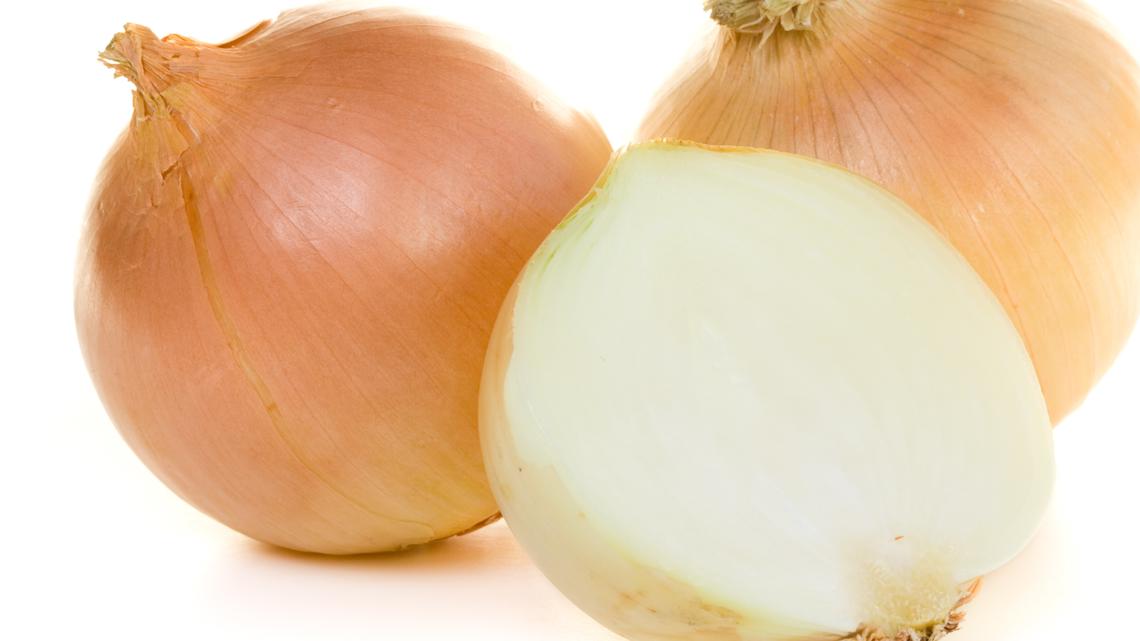Kare11
The race to find shipwrecks before quagga mussels destroy them


The mussels have carpeted thousands of shipwrecks, layering themselves so thickly their weight could topple bulkheads and decks on wooden vessels.
MADISON, Wis. — The Great Lakes’ frigid fresh water used to keep shipwrecks so well preserved that divers could see dishes in the cupboards. Downed planes that spent decades underwater were left so pristine they could practically fly again when archaeologists finally discovered them.
Now, an invasive mussel is destroying shipwrecks deep in the depths of the lakes, forcing archeologists and amateur historians into a race against time to find as many sites as they can before the region touching eight U.S. states and the Canadian province of Ontario loses any physical trace of its centuries-long maritime history.
“What you need to understand is every shipwreck is covered with quagga mussels in the lower Great Lakes,” Wisconsin state maritime archaeologist Tamara Thomsen said. “Everything. If you drain the lakes, you’ll get a bowl of quagga mussels.”
Quagga mussels, finger-sized mollusks with voracious appetites, have become the dominant invasive species in the lower Great Lakes over the past 30 years, according to biologists.
The creatures have covered virtually every shipwreck and downed plane in all of the lakes except Lake Superior, archaeologists say. The mussels burrow into wooden vessels, building upon themselves in layers so thick they will eventually crush walls and decks. They also produce acid that can corrode steel and iron ships. No one has found a viable way to stop them.
Wayne Lusardi, Michigan’s state maritime archaeologist, is pushing to raise more pieces of a World War II plane flown by a Tuskegee airman that crashed in Lake Huron in 1944.
“Divers started discovering (planes) in the 1960s and 1970s,” he said. “Some were so preserved they could fly again. (Now) when they’re removed the planes look like Swiss cheese. (Quaggas are) literally burning holes in them.”
Quagga mussels, native to Russia and Ukraine, were discovered in the Great Lakes in 1989, around the same time as their infamous cousin species, zebra mussels. Scientists believe the creatures arrived via ballast dumps from transoceanic freighters making their way to Great Lakes ports.
Unlike zebra mussels, quaggas are hungrier, hardier and more tolerant of colder temperatures. They devour plankton and other suspended nutrients, eliminating the base level of food chains. They consume so many nutrients at such high rates they can render portions of the murky Great Lakes as clear as tropical seas. And while zebra mussels prefer hard surfaces, quaggas can attach to soft surfaces at greater depths, enabling them to colonize even the lakes’ sandy bottoms.
After 30 years of colonization, quaggas have displaced zebra mussels as the dominant mussel in the Great Lakes. Zebras made up more than 98% of mussels in Lake Michigan in 2000, according to the University of California, Riverside’s Center for Invasive Species Research. Five years later, quaggas represented 97.7%.
For wooden and metal ships, the quaggas’ success has translated into overwhelming destruction.
The mussels can burrow into sunken wooden ships, stacking upon themselves until details such as name plates and carvings are completely obscured. Divers who try to brush them off inevitably peel away some wood. Quaggas also can create clouds of carbon dioxide, as well as feces that corrode iron and steel, accelerating metal shipwrecks’ decay.
Quaggas have yet to establish a foothold in Lake Superior. Biologists believe the water there contains less calcium, which quaggas need to make their shells, said Dr. Harvey Bootsma, a professor at the University of Wisconsin-Milwaukee’s School of Freshwater Sciences.
That means the remains of the Edmund Fitzgerald, a freighter that went down in that lake during a storm in 1975 and was immortalized in the Gordon Lightfoot song, “The Ballad of the Edmund Fitzgerald,” are safe, at least for now.
Lusardi, Michigan’s state maritime archaeologist, ticked off a long list of shipwreck sites in the lower Great Lakes consumed by quaggas.
His list included the Daniel J. Morrel, a freighter that sank during a storm on Lake Huron in 1966, killing all but one of the 29 crew members, and the Cedarville, a freighter that sank in the Straits of Mackinac in 1965, killing eight crew members. He also listed the Carl D. Bradley, another freighter that went down during a storm in northern Lake Michigan in 1958, killing 33 sailors.
The plane Lusardi is trying to recover is a Bell P-39 that went down in Lake Huron during a training exercise in 1944, killing Frank H. Moody, a Tuskegee airman. The Tuskegee Airmen were a group of Black military pilots who received training at Tuskegee Army Air Field in Alabama during World War II.
Brendon Baillod, a Great Lakes historian based in Madison, has spent the last five years searching for the Trinidad, a grain schooner that went down in Lake Michigan in 1881. He and fellow historian Bob Jaeck finally found the wreck in July off Algoma, Wisconsin.
The first photos of the site, taken by a robot vehicle, showed the ship was in unusually good shape, with intact rigging and dishes still in cabins. But the site was “fully carpeted” with quagga mussels, Baillod said.
“It has been completely colonized,” he said. “Twenty years ago, even 15 years ago, that site would have been clean. Now you can’t even recognize the bell. You can’t see the nameboard. If you brush those mussels off, it tears the wood off with it.”
Quagga management options could include treating them with toxic chemicals; covering them with tarps that restrict water flow and starve them of oxygen and food; introducing predator species; or suffocating them by adding carbon dioxide to the water.
So far nothing looks promising on a large scale, UW-Milwaukee’s Bootsma said.
“The only way they will disappear from a lake as large as Lake Michigan is through some disease or possibly an introduced predator,” he said.
That leaves archaeologists and historians like Baillod scrambling to locate as many wrecks as possible to map and document before they disintegrate under the quaggas’ assaults.
At stake are the physical remnants of a maritime industry that helped settle the Great Lakes region and establish port cities such as Milwaukee, Detroit, Chicago and Toledo, Ohio.
“When we lose those tangible, preserved time capsules of our history, we lose our tangible connection to the past,” Baillod said. “Once they’re gone, it’s all just a memory. It’s all just stuff in books.”
Watch the latest local news from the Twin Cities and across Minnesota in our YouTube playlist:
Kare11
Ruff Start Rescue helps animals abandoned after hurricanes


PRINCETON, Minn. — As many families fell on hard times due to hurricanes Helene and Milton, their pets have suffered too.
Ruff Start Rescue, headquartered in Princeton, Minn., rescued 24 animals from areas in Tennessee and North Carolina that were hit by hurricanes. Azure Davis, the founder and executive director, visited the KARE 11 studio to share more about these animals and how you can help.
For more information on Ruff Start Rescue and to look at adoptable animals, click here.
Kare11
Grand jury indicts alleged shooter in tobacco store killings

The Hennepin County Attorney’s Office says 26-year-old Maleek Conley was indicted on 13 charges in a shooting that killed two and wounded two others on Dec. 3, 2023.
MINNEAPOLIS — The man accused in a shooting that killed two at a Minneapolis tobacco shop now faces two charges of first-degree murder after being indicted by a Hennepin County grand jury.
Maleek Jabril Conley, 26, was already charged with two counts of second-degree murder in the shooting that occurred on Dec. 3, 2023. An employee of Royal Cigar & Tobacco in Dinkytown told responding Minneapolis police officers that a verbal altercation involving a group of men escalated into a fistfight and then gunfire.
Two men, identified as Jamartre Sanders and Bryson Haskell, were killed in the shooting. Two others were shot but survived. Conley was later identified as the gunman by surveillance video.
Hennepin County Attorney Mary Moriarty said Friday that a grand jury indicted Conley on 13 charges related to the tobacco store shooting, including first-degree premeditated murder, two counts of first-degree premeditated attempted murder, four counts of second-degree intentional murder, two counts of attempted second-degree intentional murder, and one count of second-degree assault with a dangerous weapon.


“This was a brutal crime,” Moriarty said in a released statement. “Mr. Conley fired at the victims at close range, killing two people and wounding two others. I am grateful for the service of the grand jury in moving us closer to appropriate accountability for Mr. Conley’s shocking conduct.”
Conley remains in custody at the Hennepin County jail.
Kare11
Colorado farm recalls onions amid E. coli concerns

The recall of yellow onions from Taylor Farms comes after an outbreak linked to McDonald’s Quarter Pounders.
COLORADO, USA — A food service supplier has issued a recall for onions from a Colorado Springs Taylor Farms facility due to possible E. coli contamination, according to a letter provided to 9NEWS by the restaurant chain Illegal Pete’s.
The move by US Foods comes after an outbreak of E. coli that has sickened dozens of people and is blamed for the death of one person in Mesa County. According to health officials, it has been linked to McDonald’s Quarter Pounders. The outbreak’s exact source is unknown, but the focus has been on slivered onions and the beef patties specifically used by the chain for those burgers.
McDonald’s has stopped serving the burgers.
The letter sent on Wednesday from US Food urged its customers, including Illegal Pete’s to immediately stop using the affected products.
RELATED: Food safety attorney: Lawsuits coming against McDonald’s following Colorado E. coli outbreak
It indicated that the products included were yellow onions from Taylor Farms that were either whole or diced. The recalled onions came from a Taylor Farms facility in Colorado, a U.S. Foods spokesperson said.
In a statement, Illegal Pete’s said they’re taking the issue seriously and are following all of the instructions in the letter.
They also noted that they don’t use a diced/ sliced white onion product that has been identified as a possible source of E. coli. The company said Taylor Farms issued a blanket recall from a certain lots.
The Centers for Disease Control said as of Tuesday that 49 people in 10 states have gotten sick, including 26 illnesses and one death in Colorado. Nine people have been sickened in Nebraska.
At least 10 of Colorado’s cases were reported in Mesa County in western Colorado, according to the county health department spokeswoman.
The Colorado Department of Public Health and Environment said the 26 people who have gotten sick in Colorado live in nine counties: Arapahoe, Chaffee, El Paso, Gunnison, Larimer, Mesa, Routt, Teller and Weld. They did not necessarily eat at McDonald’s locations in the counties where they live, the health department said.
The CDC said 10 people across the affected states have been hospitalized. The outbreak also includes a child hospitalized with severe kidney complications.
Everyone interviewed said they ate at McDonald’s before getting sick and specifically mentioned eating a Quarter Pounder hamburger, according to the CDC. The agency said infections were reported between Sept. 27 and Oct. 11.






GIPHY App Key not set. Please check settings